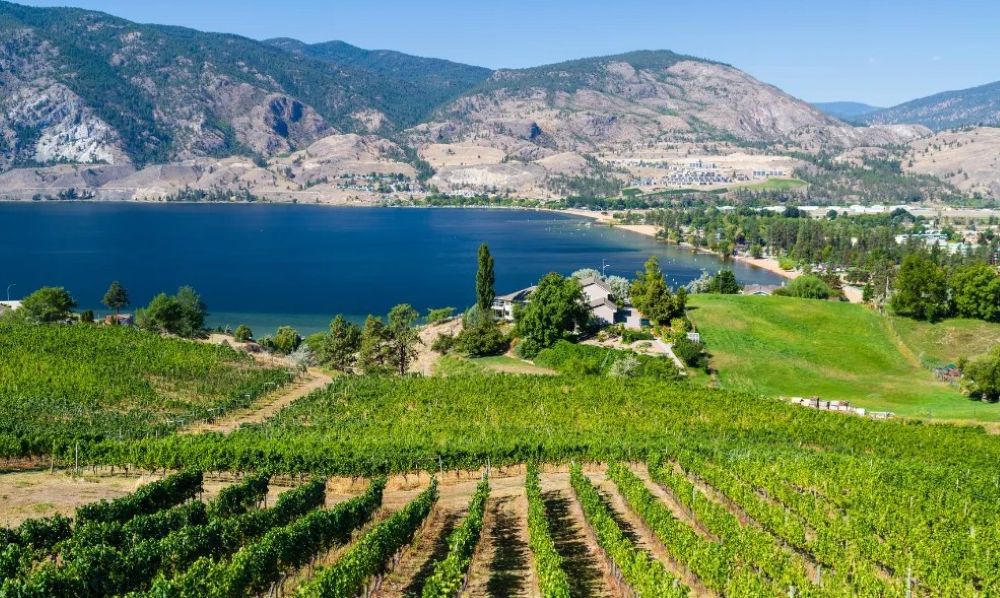President Trump’s random outbursts about absorbing Canada as a 51st U.S. state have, of course, appalled millions of Canadians. And their consternation has turned to outrage as Trump threatened to impose high tariffs on Canadian imports. All of which has led many in the north to stay away from the U.S. and boycott its goods.
But loyal Canadians cannot boycott U.S. wine, beer, and liquor. That’s because provincial governments do so. They control wholesale alcohol distribution, and early this year as a protest, they stopped buying from U.S. suppliers. The provinces have sat on their inventories of U.S. alcohol ever since. At B.C. Liquor stores, signs urge shoppers, somewhat unnecessarily given limited options, to “Buy Canadian Instead.”
In other words, whiskey sours in Vancouver, B.C., are now made not with Kentucky bourbon but with rye from north of the border—a small price to pay for independence from the short-fingered vulgarian. (BTW, Trump is a teetotaler who toasts other world leaders with diet Cokes, once said not drinking was “one of my only good traits,” and yet owns vineyards and a winery in Virginia, managed by son Eric.)
With no competition from U.S. wine, B.C. winemakers have seen a surge in demand. There’s a wrinkle, though. Canadian wine drinkers now face a dilemma: whether to continue imbibing British Columbia wines now that many are made with grapes from Washington and Oregon.
Bitter cold hit B.C.’s Okanagan and Similkameen Valley vineyards for five days in January 2024. It wiped out almost the entire crop for the year—killing vines and preventing ones that survived from budding. The financial losses were enormous, as the Okanagan accounts for 86 percent of wine production in the entire province. In previous years, B.C.’s 350 licensed grape wineries generated annual revenues of $3.75 billion and employed more than 14,000 workers, the provincial government says.
Those jobs were at stake last year as vintners contemplated shutting down winemaking. Okanagan communities faced the prospect of a further economic blow from a decline in wine tourism.
Bringing in grapes from elsewhere in Canada was not an option. They are grown in other parts of the country, particularly Nova Scotia and southern Ontario, but not the fine-wine grapes for which B.C. is known. Those other regions are too cold.

Not so Eastern Washington and Oregon’s Willamette Valley. And last year they happened to have bumper crops of wine grapes, more than their own winemakers needed. There was one hitch: the province’s tight restrictions and high taxes on such imports.
Rather than dole out many millions of dollars in aid to the wine industry and surrounding communities, the B.C. government in July 2024 temporarily relaxed its import restrictions and duties on imports of wine grapes. B.C. wineries brought grapes and juice across the border for their 2024 vintage and also imported vines to graft onto damaged but viable vine trunks.
The benefit to Washington wine makers has been “crucial,” according to Chris Stone of the Washington State Wine Commission. The state’s grape exports in prior years were modest—about 5,000 tons out of 150,000 tons produced—but now they soften the effect of soured U.S.-Canada relations. Until Trump was elected, Canada was Washington’s largest export market for bottled wine, worth about $12 million annually. Those exports have stopped completely.
B.C. vines are recovering, as this year’s growing season has been favorable. But the yield from them is still down compared with 2023; new vines will not produce for another couple of years. Industry groups estimate the province is still 10,000 tons short of the grapes needed to meet market demand. So in August, the B.C. government announced it would extend for another year the “temporary vintage replacement supports” allowing wineries to use grapes and juice from outside the province.
White wines from the 2024 vintage are only now beginning to come to market, with reds to follow in future years. For years to come therefore, B.C. wines will be tainted by their origins in the belly of the Great Satan. Will Canadian consumers quaff them, nonetheless?
That remains to be seen. Bottles won’t carry the familiar Canadian VQA, Vintners Quality Alliance, labelling. So the Wine Growers of B.C. worked with Valley wineries to ensure quality standards and proper labelling for 2024 vintages: “Crafted in Canada, but not grown.”
For now, at least, some B.C. winemakers are touting the fact that the grapes for their wines were imported before Trump was elected. “Made Before the Madness,” reads a sticker on bottles of 2024 Chardonnay, Sauvignon Blanc, and White Pinot Noir from SpearHead Winery in Kelowna, B.C. The wines are branded “Dual Citizen.”
Discover more from Post Alley
Subscribe to get the latest posts sent to your email.
